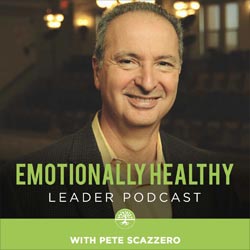✅ How Healthy is Your Leadership? Take this short and free quiz to find out. // https://www.emotionallyhealthy.org/leadership-assessment/
----------------------------
The quality of the people who surround you will determine the success of your leadership. Because there is undeniable loneliness in leadership, it is ever more important that we evaluate our relationships on a regular basis.
Sadly, far too many pastors and leaders choose to go it alone, or surround themselves with foolish counsel (in the form of wrong relationships)
That's why in today's podcast, I explore the five types of relationships you need in your life in order to flourish as a leader or pastor.
Honestly, I wish I had this list 30 years ago. It would have saved me from confusion, foolish decision-making, and unnecessary isolation!








